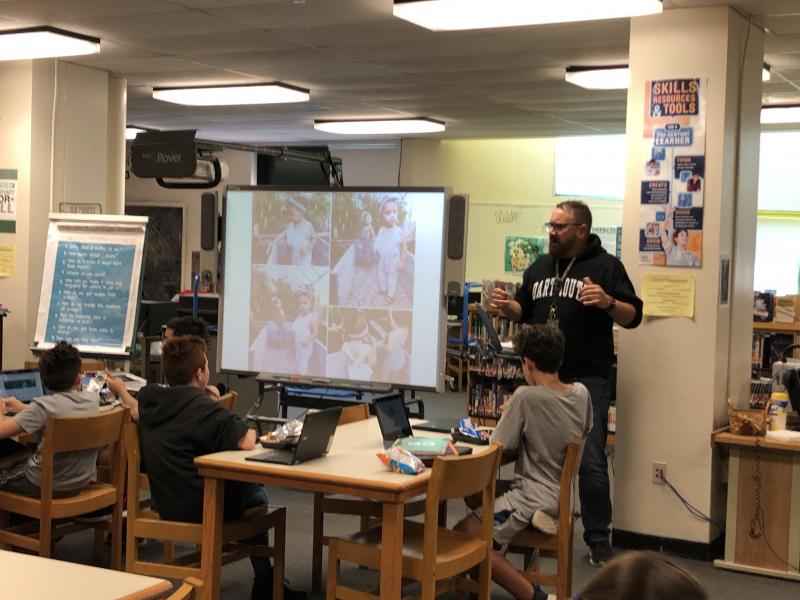Dartmouth Middle School climate talks get students thinking about issues, solutions
Dartmouth middle schoolers are learning about the realities of climate change, and what they can do to stop it at a series of lunchtime lectures.
From Monday to Friday, middle school students brought their lunches to the library to learn about climate change as part of Climate Prep Week.
The middle school library joined libraries from across New England to bring guest speakers, lectures, and lessons about climate change to the community.
Students watched a documentary called Little Warriors, which documents the successful implementation of a climate change policy in Indianapolis, Indiana, led by a group of students.
UMass Dartmouth oceanographer Avijit Gangopadhyay and research assistant Adrienne Silva discussed climate change and the ocean, and on Thursday Round the Bend Farm’s Desa Van Laarhoven highlighted the work the Dartmouth farm is doing in sustainable, local agriculture.
“Seventy-six percent of people agree climate change is a crisis that needs to be handled now, but only one in five people haers about climate change on a regular basis,” said Dartmouth Middle literacy coach Daniel Lefebvre, who led Friday's round table discussion session. “Part of this is getting us to talk about it.”
About 60 students signed up to attend the lectures. Seventh grader Natalie Murphy marched in a climate change protest held in New Bedford on September 20. She was joined by several of her friends and family members.
“It’s going to be our world,” Murphy said. “All the adults are ruining the world, and they’re just going to die and turn it over to us.”
Murphy said real change will take some time, but more people need to be aware of the issues to affect change.
“More people need to know about it, know what’s going on — people we have in office are saying it’s not real,” Murphy said.
During the climate change presentations, Murphy said she was struck by how the effects of climate change are already showing in other countries in the form of air pollution. The group saw photos and data of air pollution in countries like China.
Zach Amaral learned about work the United Nations is doing right now to combat climate change, and what he and his fellow students can do now to inspire change.
After the presentations, students were encouraged to think about climate-related issues and solutions they encounter in their daily lives, and how to solve them. Amaral said he’d like to see his school cut down on styrofoam lunch trays, and begin composting to cut down on garbage.
During a roundtable reflection session, Lefebvre reinforced that idea, that even at the local level people can tackle climate change.
He recalled his own personal journey to support more energy efficiency where he lives in Taunton, when he learned that the local electric company which services the city gets most of electricity supply from coal and gas.












